A Vote for Scottish Independence
This article about the vote for Scottish Independence was first published in September, 2014 - a few days before the day that the people of Scotland voted for cessation from the United Kingdom. Of course, on that occasion - they voted to stay in the U.K., but I think this letter still stands to give a little historical context to the vote.
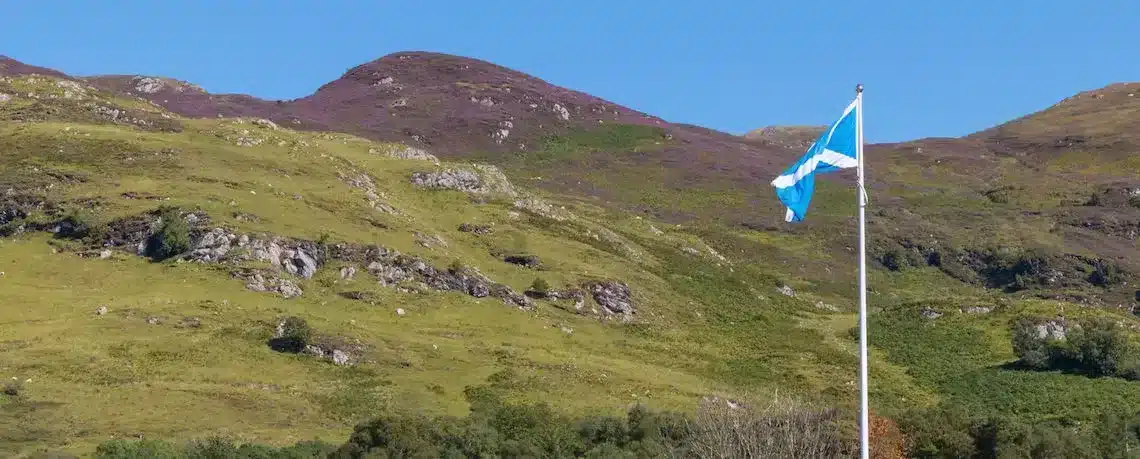
A couple of days ago I was having lunch with one Ian Armstrong (Ian designed the cover of A Letter from Ireland). His family has been in Cork for generations – but his ancestors came from County Antrim in Ulster – and before that they arrived in Ireland from the Scottish border counties in the 1600s.
They came to Ireland while Scotland was still an independent kingdom – and many of his Scottish cousins will make an important and related decision this week.
A Scottish Vote for Independence.
When was the last time you remember a country voting for it’s independence? It’s not really an everyday occurrence. However, this Thursday the people of Scotland go to the polls to answer a simple question: “Should Scotland be an independent country? Yes or No.” If you were living in Scotland, which way would you vote?
Many of our readers either live in Scotland or have mixed Irish/Scottish ancestry. The readers who live in Scotland typically arrived there as part of migrations following the Great Famine and in subsequent years. They typically came from places like County Donegal and Tyrone.
Also, around 25% of our readers are of “Scotch-Irish” (or Ulster-Scots) heritage. Their ancestors arrived in Ulster from Scotland – settled for as many generations to consider themselves Irish – and then moved on to the colonies of North America.
As a result, I get many reader questions along the lines of “Is my name Irish or Scottish?” or “Is Scots Gaelic the same as Irish Gaelic” and so on.
Scotland Unites for the First Time.
Let’s look back a little in time – all the way back before one thousand years ago. At the time, much of the land we know as Scotland was called “Alba”. The Romans gave a name to the Irish Dál Riada who occupied much of the western coast – they called them the “Scotti”. This was, in fact, the name that the Romans gave to the Irish.
By the 800s, the Gaelic-speaking Scotti of the west and the Picts of the east came together to form a single kingdom to counter the threat of the Vikings. This united kingdom eventually became known as Scotland – or “land of the Scotti”.
The Kingdoms of Scotland and England existed side by side for many centuries – hesitant partners and often enemies. In the early 1600s, James the VI of Scotland inherited the throne of England also. This was the first time that a single king held both thrones at once. Hi coronation helped to usher in a period of stability – specially around the border areas where raiding families made it a very dangerous place for traveling. Raiding families like the Armstrongs mentioned at the start of this letter.
At the same time, James had tremendous problems with the “wildest” part, of the Kingdom of Ireland – around the counties of Ulster. This prompted the first of the main “plantations” from Scotland and border areas to Ireland. Perhaps James thought he was settling two problems at once!
As the 1600s moved on, more planters moved from the lowlands of Scotland and the border regions to the counties of Ulster. They were mostly Presbyterian – which was considered a wayward religion (with no respect for hierarchy) by the establishment.
But towards the end of the 1600s, Scotland was becoming a much poorer place in comparison with it’s neighbour, which was feasting on the riches of it’s new colonies. Also, of Scotland’s population suffered a high degree of religious persecution – as well as a famine wiping out about 20% of the population near the close of the century. These events drove the emigration both from Scotland to Ireland – and directly to the colonies (Ireland was also seen as a colony for much of the 1600s) – to record highs.
Things were getting desperate.
Scotland Loses its Independence for the First Time.
In the 1690s, a number of monied Scots saw an opportunity to establish Scotland’s first colony. They called it Caledonia and it was located where the Panama Canal is today. Much excitement was generated and the scheme was heavily funded for success. However, due to political manoeuvring by competitors such as the East India Company, bad planning and bad luck, the scheme was a failure.In fact, it was a disaster.
Up to 30% of all the money circulating in Scotland was lost in this debacle. This left many figures of the Scottish establishment hurting and in need of support (and many of them were members of Scotland’s parliament). In stepped England with a possible solution. England was compromised militarily with a weak neighbour to the north – and started negotiations for a uniting of the Kingdoms of Scotland and England.
These negotiations completed in 1706 and Scotland received a guarantee of access to the colonies for trade. Members of the Scottish establishment who lost so much in their Panama investment were compensated (and many of these people were also the negotiators). England had won a reliable ally and Scotland had won an economic future. The treaty was hugely unpopular in Scotland. It was noted that it was “contrary to the inclinations of at least three-fourths of the Kingdom”. There were many threats of rioting and martial law was imposed. On the May 1st, 1707, the United Kingdom of England and Scotland came into being.
By this time, Ian Armstrong’s ancestors and those of many of our Ulster-Scots readers had departed for Ireland and further onto the colonies. The ancestors of our readers who live today in Scotland had yet to arrive from Ireland. Right, we’re almost there! It took at least thirty years for Scotland to benefit from access to the colonies of the United Kingdom. By the 1760s, Glasgow was the major world centre for tobacco importing and shipbuilding.
And so Scotland has remained part of the United Kingdom to this day. The last country to leave this United Kingdom was most of the island of Ireland, which in 1922, won its independence and later became the Republic of Ireland. But it took until the 1960s for real prosperity to hit Irish shores for the first time. At the time, Ireland certainly did not seek it’s independence for economic reasons. I wonder which way Ian Armstrong’s cousins will vote this Thursday?
Do you have Scottish ancestors? Which way do you think they would have voted for Scottish independence?
That’s it for now. As always, do feel free to leave a comment below if you want to share a story, ask a question about your Irish surname or just to say hello!
Slán for now – Mike.

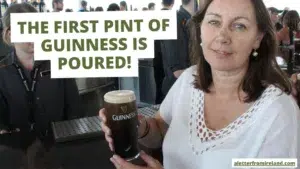
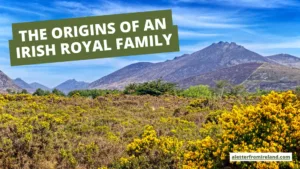
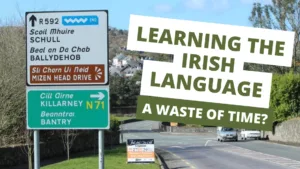
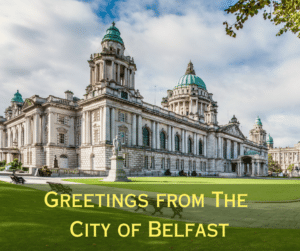
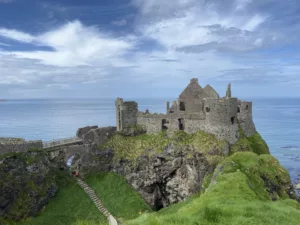
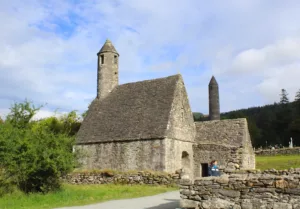
Only Plus Members can comment - Join Now
If you already have an account sign in here.